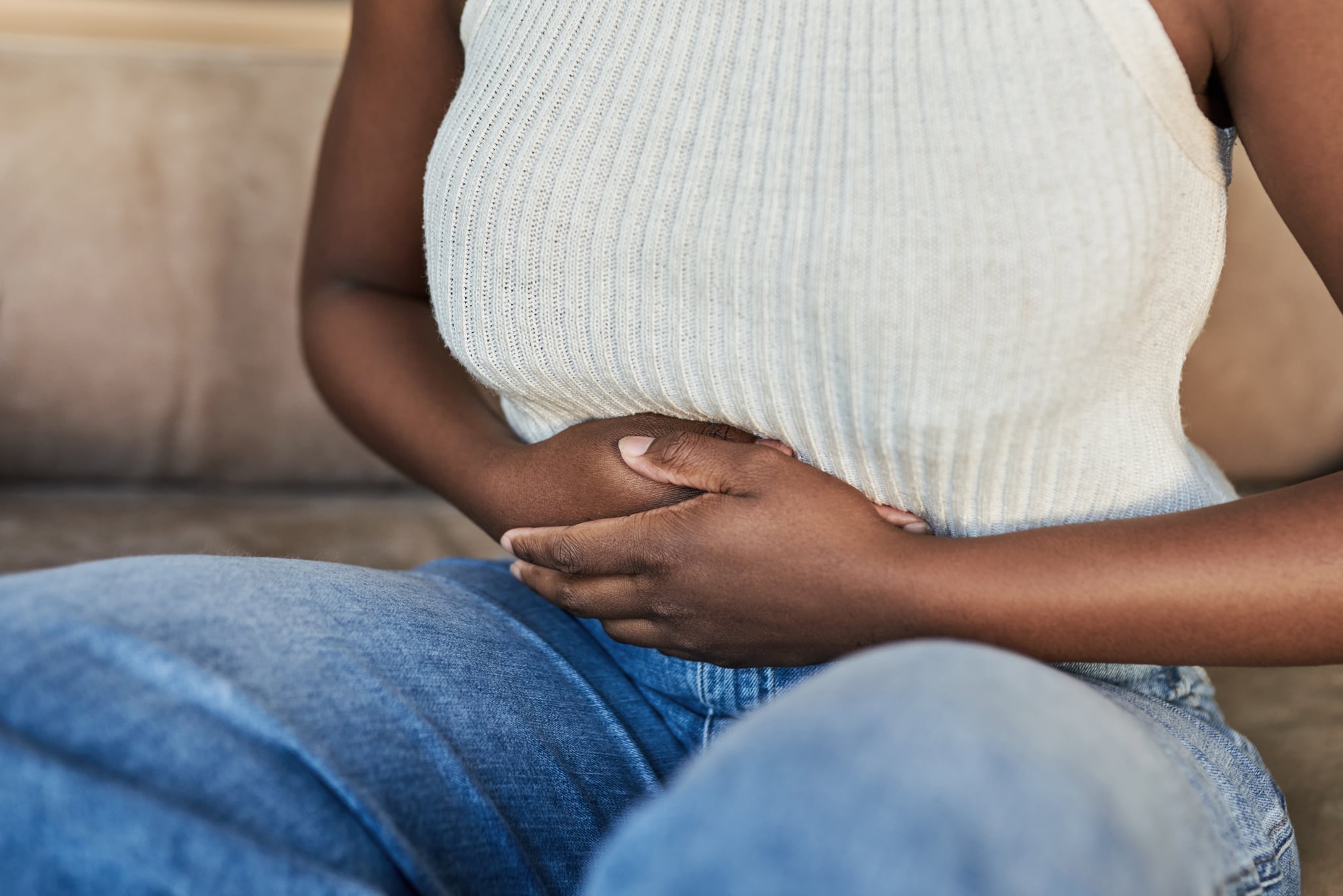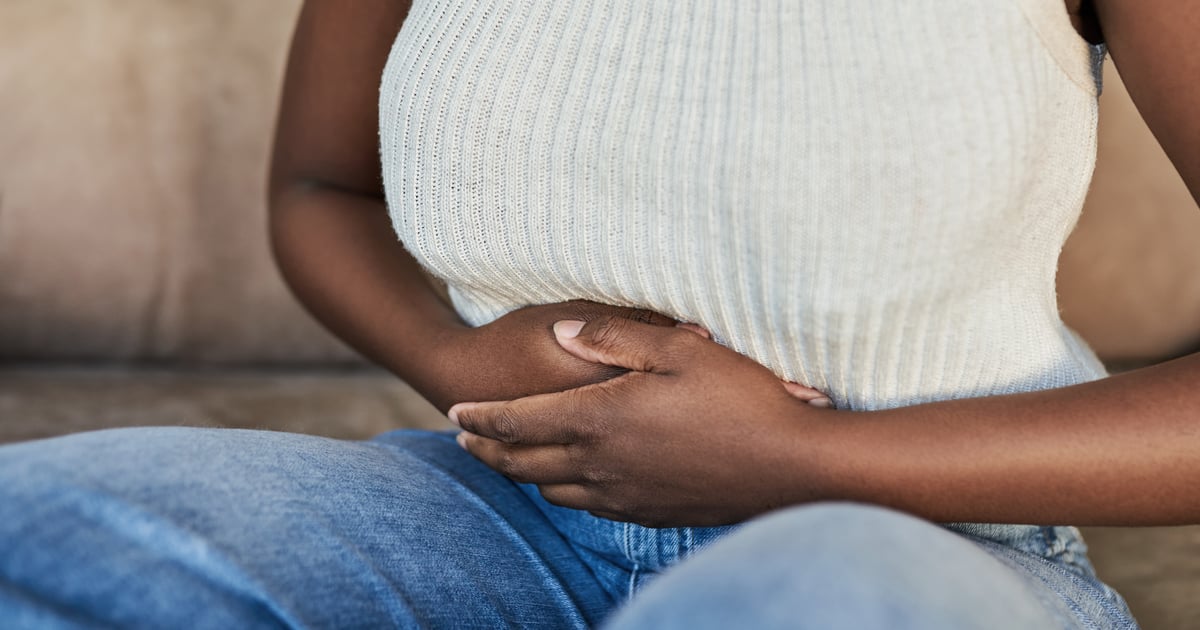Products You May Like

Let me paint a picture of something you may have experienced: you’re relaxing on the couch when your stomach starts to growl. You realize you’re hungry — and maybe you have been for a while — so you head to the pantry for something to eat. But when you stand up, you feel another sensation: bloating. You wonder how you can feel both hungry and full at the same time, and question if you should have a snack after all. If this has happened to you, you’re not alone. As someone who’s also struggled with feeling simultaneously hungry and bloated, I decided to talk with a gastroenterologist and a dietitian on why this occurs and how to avoid it.
Why Do I Feel Bloated When I’m Hungry?
Bloating and hunger can occur together for a number of reasons, including some underlying conditions. “Those with certain digestive or endocrine issues — such as, but not limited to, PCOS, IBS, endometriosis, Crohn’s, and celiac disease — might experience higher rates of bloating given the way these diseases manifest and affect absorption and digestion,” Supriya Lal, RD, MPH, a freelance dietitian based in New York City, told POPSUGAR.
However, you also may experience bloating when you’ve simply waited too long to eat. “When we are hungry or when our bodies anticipate food, our bodies produce stomach acid, which is necessary to absorb the nutrients,” Lal explained. “When there is stomach acid but no food, that stomach acid can produce gas which can, in turn, lead to bloating.”
Harvey Hamilton Allen, Jr., MD, a board-certified physician in internal medicine and gastroenterology, agreed that stomach acid and gas are common culprits, adding that when your stomach sits empty for too long, it can also fill up with air, which can cause you to feel bloated.
What Can I Do to Avoid Feeling Bloated When I’m Hungry?
If you struggle like I do, you know feeling bloated when you’re hungry can affect your appetite — but according to Lal, the best thing you can do to fix this is to eat regularly. “I suggest small, frequent snacks throughout the day to keep stomach acid at bay,” Lal said. “For instance, when individuals have uncontrolled acid reflux or GERD, this is a nutritional strategy that can be used to curtail symptoms including bloating, nausea, and burping.”
You can also avoid certain foods that may exacerbate the issue. “We tell patients to avoid beans, onions, carrots, celery, raisins, prunes, and even Brussels sprouts when experiencing problems with bloating,” Dr. Allen said. If this is an ongoing problem, your doctor may suggest dietary changes such as the FODMAP diet — which limits foods containing sugars that cause intestinal upset, like wheat, dairy products, and beans — or even certain medications and supplements that can help keep your gut balanced. That’s why, as Dr. Allen noted, “it is important to check with your primary physician if these symptoms persist.”
